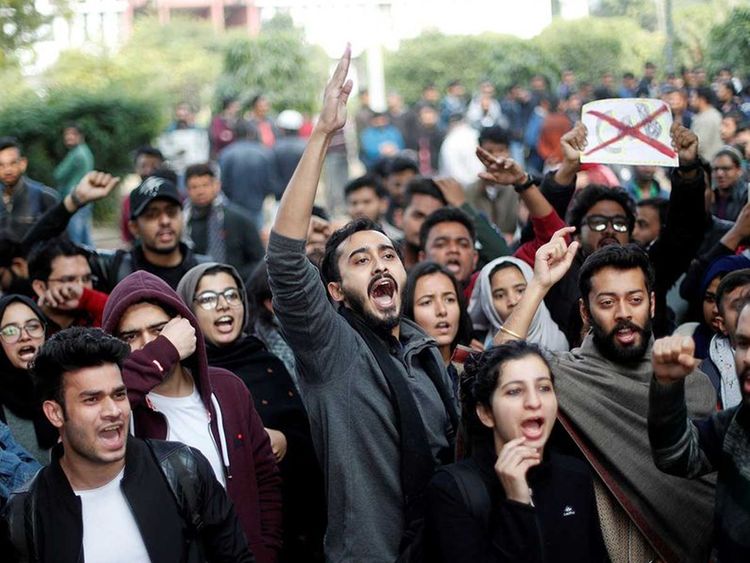The new Indian citizenship bill is against the spiritual norms of humanity, say minorities

Dubai: Pakistani minorities have strongly condemned the new Citizenship Amendment Act (CAA), which discriminates against Muslims.
They have also rejected India’s offer to grant them citizenship under the new law. They said they are not interested in taking refuge in India and rejected Indian Prime Minister Narendra Modi’s ‘humanitarian’ gesture.
Speaking to Gulf News, Dileep Kumar, a Dubai-based Pakistani Hindu, said: “The law from India is totally against [the] spiritual norms of humanity and Sanatana dharma.” Sanatana dharma is term used in Hinduism to denote the set of duties or religiously ordained practices incumbent upon all Hindus, regardless of class, caste or sect.
“As humans, we cannot discriminate, irrespective of any religious followings. We do not want [the] Muslims of India to face terror. We condemn the law as religious persecution is unacceptable to [the] Hindus of Pakistan,” Kumar added.
What is the issue?
Citing the harassment of minorities in Pakistan, Bangladesh and Afghanistan, the Indian parliament recently amended its citizenship law, offering citizenship rights to Hindu, Buddhist, Christian, Parsi and Jain communities migrating from these countries.
Citizenship Amendment Act is a newly-passed law that applies to Hindus, Christians and other religious minorities who are in India illegally from Muslim-majority Bangladesh, Pakistan and Afghanistan. They can apply for citizenship under a religious persecution clause.
The law, however, does not include Muslim refugees or migrants — it’s a move that critics are calling a clear indication of the changing politics in secular India. India has a Hindu population but is also home to 200 million Muslims and other minorities.
This amendment of the Citizenship Act 1955, which requires the applicant (regardless of religion or country of origin) to have resided in India for 11 of the past 14 years, relaxes this requirement from 11 years to six years, but only for Hindus, Sikhs, Buddhists, Jains, Parsis and Christians from the three nations.
“This is a unanimous message from Pakistan’s entire Hindu community to Indian Prime Minister [Narendra] Modi. A true Hindu will never support this legislation,” he said. He added that the law has violated India’s own constitution.
Senator Anwar Lal Dean, a Christian member of the Pakistani parliament’s upper house, also said the law is meant to pitch religious communities against each other, reported the Express Tribune.
“This is a clear violation of fundamental human rights. We categorically reject it,” said Dean, a leader of the opposition Pakistan People’s Party.
“Through such unjust and uncalled steps, the Modi government wants to pitch religious communities against each other,” he said.
“The Sikh community is a minority both in India and Pakistan. Being a member of a minority, I can feel the pain and the fears of the Muslim minority [in India]. This is simply persecution,” he said. Singh urged Modi not to push minorities’ “backs to the wall.”
Hindu population in Pakistan
Though there are no exact official numbers available, the Pakistan Hindu Council says that there are more than 8 million Hindus currently living Pakistan.
They constitute about 4 per cent of the population of 220 million. They live primarily in the urban areas of the province of Sindh in the lower Indus valley and more than half are concentrated in the south-east district of Tharparkar which borders India.
For the most part, Hindus in Pakistan are well educated and active in commerce, trade and the civil service.
According to the Council, approximately 94 per cent of Hindus are living in Sindh Province, and more than 4 per cent are living in Punjab Province of Pakistan, where as a small portion of this population is settled in Balochistan and Khyber-Pakhtunkhwa Provinces.
